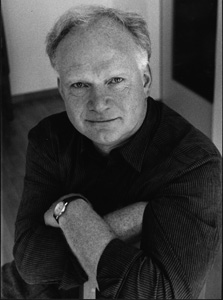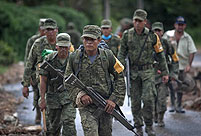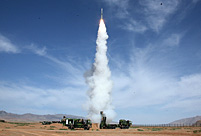 |
Under the imploring headline 'We Germans Don't Want a German Europe', German Finance Minister Wolfgang Schäuble recently denied in a newspaper essay that Germany seeks a political leadership role in the European Union. 'The idea that Germans want to play a special role in Europe is a misunderstanding', Schäuble calmed down. 'We are not asking others to be like us. This accusation makes no more sense than the national stereotypes that lurk behind such statements.'
But the facts tell a different story, as the political scientist Edgar Grande found out in a European-wide survey. He and his crew studied the discourses on the European crisis in different national contexts. His findings point to a remarkably clear difference between Germany and the other European countries, including the United Kingdom. Whereas in all countries supranational actors (the Troika) are acknowledged as powerful players in the national arena, they are ignored within the public discourse in Germany. This means that the German debate on the Euro-crisis was primarily a national debate, while in all other countries, it was primarily a European debate dominated by supranational and German actors. These empirical findings clearly affirm my diagnosis on 'German Europe' which has evolved in the cause of the Euro-crisis in both its meanings: while Germany is the centre of discussion in all national discourses across Europe, the discussion in Germany itself is almost exclusively focused on Germany.
With federal elections taking place in September, the visitor to Berlin might expect the city to be a hot bed of controversy on Europe. But Germany is oddly detached. The German campaign ahead of September 22nd general elections has focused on US intelligence surveillance, the rising cost of energy, child care facilities. That's it. Germany, the key to solving the Euro-crisis, seems immune to a polarizing dispute over alternatives, none of which is available for free.
Since the Euro-crisis began, many governments across Europe have been swept from power. The opposite seems to be true with Germany's Chancellor. Germans love Angela Merkel – first and foremost because she asks little of them. And because Merkel is practicing a new style of power politics in Europe: Merkiavellism – a combination of Machiavelli and Merkel. 'Is it better to be loved or feared?' Machiavelli had inquired in The Prince. His answer is that 'one ought to be both feared and loved, but as it is difficult for the two to go together, it is much saver to be feared than loved, if one of the two has to be wanting'. Merkiavelli is applying this principle selectively in a new way. Abroad she is to be feared, at home she should be loved – perhaps because she has taught foreign countries to fear. Brutal neo-liberalism to the outside world, consensus with social democratic tinge at home – that is the successful formula which has enabled Merkiavelli constantly to expend her own position of power and that of Germany as well.
And there is a striking discrepancy between the positions of executive elites and the position of political parties too. In all European countries there are strong Euro-skeptic or anti–European movements and parties giving the increasingly restless citizenry a voice. To them the austerity politics imposed on them by their governments are monstrous acts of injustice. They are losing their last spark of hope and trust in the national and European system of politics. This again is not the case in Germany. Here we find a rare state of consensus. The two opposition parties, the Social Democrats and the Greens, may be challenging Merkel's austerity programs in details, but always voted with her in parliament. On the other hand, two of the parties which form Merkel's government, the Bavarian CSU and the liberal FDP, are remarkably distant from their own government's position.
As a result, the German debate on the Euro-crisis didn't have an opposition in parliament. Rather there is a strange mixture of pros and cons. On the one hand, you find an informal 'Grand Coalition' between the government and the opposition, namely the Social Democrats and the Greens. On the other hand, this Grand Coalition was opposed by parties which form the government coalition CSU and FDP. There is a strange 'German way' exchanging positions in parliamentary voting on a major decision, in which chancellor Merkel could not find full support of her coalition partners.
But the European crisis is coming to a head, and Germany finds itself faced with a historic decision. It must attempt either to revive the dream and poetry of a political Europe in the imagination of the people or to stick with a policy of muddling through and of using hesitation as a means of coercion – until the Euro do us part. Germany has become too powerful to be able to afford the luxury of indecision and inactivity. But Germany is sleep-walking down its own way. Or – as Jürgen Habermas puts it - 'Germany isn't dancing. It's dozing on a volcano.'
And there is a final paradox: even if Germany is dozing on a volcano, even if there is no discussion on the moment of decision, the most likely outcome of the elections is going to be in favor of the next step towards a political European Union. This is because most likely Angela Merkel will return to the chancellery for a third term. I expect that there will be a silent turn to a politics of more Europe. At the end of the day, switching positions is the key element of Merkiavelli's power politics. And saving the Euro and the EU is good for the book of history.
In the unlikely event that Merkel won't be re-elected, a red-green government would indeed take the initiative together with France, Italy, Spain, Poland etc. to correct the design flaw of the European Monetary Union and take the next step in completing the political Union: producing a situation, in which Merkel, as opposition, constitutes the informal part of a 'Grand Coalition'.
Let's look at the German elections through the eyes of the others. In the governments, on the streets of Europe and in the corridors of Brussels everyone waits to see which way Berlin will go. 'I will probably be the first Polish foreign minister in history to say so', Radek Sikorski declared in 2011, 'but here it is: I fear German power less than I am beginning to fear German inactivity.' Starting on September 23rd, the day after the elections, in one constellation or the other, the question: what Europe do we want and how do we get there? will be at the centre of German and European politics. Let's hope it is going to be ein anderes Europa, another (cosmopolitan) Europe, able to stand up for itself in a world at risk, and not eine Deutsche Bundesrepublik Europa – a German Federal Republic of Europe.
Ulrich Beck is Professor of Sociology at Ludwig Maximilian University of Munich (LMU).
 Storms leave 97 dead, 58 missing in Mexico
Storms leave 97 dead, 58 missing in Mexico New model of indigenous surface-to-air missiles testfired
New model of indigenous surface-to-air missiles testfired  118.28-carat diamond to be auctioned in HK
118.28-carat diamond to be auctioned in HK Maternal love under streetlight
Maternal love under streetlight Naked foreign student sits in the middle of a road in Haikou
Naked foreign student sits in the middle of a road in Haikou  Colorful Yunnan: Enjoy the natural beauty
Colorful Yunnan: Enjoy the natural beauty Harbin named Chinese city with most beautiful women
Harbin named Chinese city with most beautiful women New college students' military training in Guangzhou
New college students' military training in Guangzhou Rugby girls
Rugby girls PLA's 38th Group Army conduct training
PLA's 38th Group Army conduct training Residences of the royal house of Savoy
Residences of the royal house of Savoy The last days of Wan Aihua
The last days of Wan Aihua Highlights at 12th National Games of China
Highlights at 12th National Games of China Beijing Film Academy welcomes freshmen
Beijing Film Academy welcomes freshmen Large mahjong party sets new world record
Large mahjong party sets new world recordDay|Week|Month